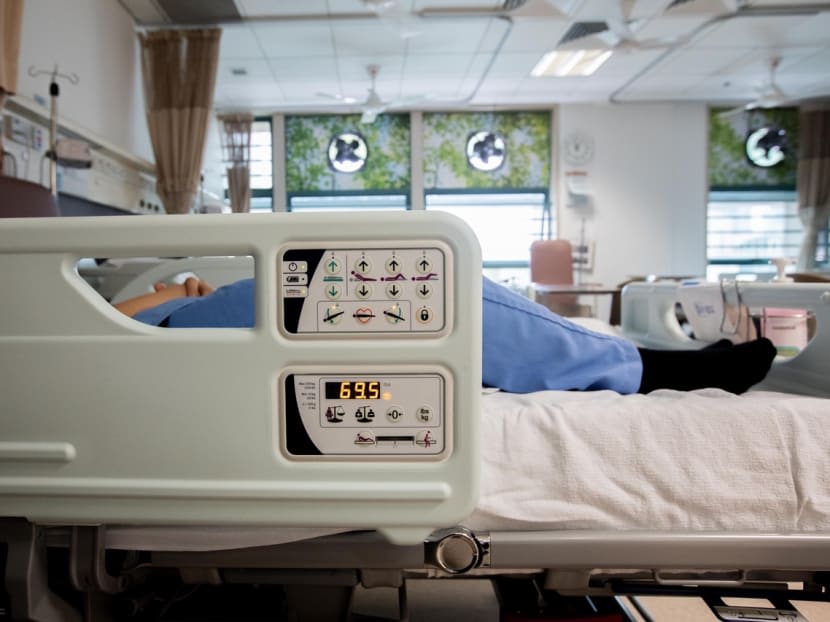Visits to hospital wards, residential care homes to be suspended from Jan 24 to Feb 20 amid Omicron surge
SINGAPORE — To protect patients and health workers in the midst of a surge in cases of the Omicron coronavirus strain, visits to all hospital wards and residential care homes will be suspended for four weeks from next Monday (Jan 24) to Feb 20.

SINGAPORE — To protect patients and health workers in the midst of a surge in cases of the Omicron coronavirus strain, visits to all hospital wards and residential care homes will be suspended for four weeks from next Monday (Jan 24) to Feb 20.
The Ministry of Health (MOH) said on Friday: “In the coming weeks, it is extremely important to protect our healthcare capacity and vulnerable seniors so as to ride through the Omicron wave.”
During the suspension period, hospitals and care homes have the discretion to allow visits for exceptional cases such as when a patient or resident is critically ill.
To help patients and residents stay connected with their loved ones, hospitals and care homes will continue supporting other communication modes such as phone or video calls.
The ministry said that during the suspension period, the following patient groups will continue to be allowed visitors on a case-by-case basis as assessed by the hospitals:
- Patients who are in critical condition
- Paediatric patients
- Mothers who are giving birth or have given birth
- Patients needing extra care from caregivers, such as those with mental incapacities or whose family members are undergoing caregiver training to provide them with better care after their discharge
These patients will be allowed only one designated visitor, with one visit a day.
Patients in critical condition may be allowed up to five designated visitors, with up to two visitors at a patient’s bedside at any time.
Visitors must adhere to Covid-19 rules, including wearing masks with good filtration capability such as surgical masks, and refraining from eating or drinking in the wards.
Visitors, regardless of their vaccination status, must produce a negative Covid-19 antigen rapid test result obtained within 24 hours before the visit. Those who have recovered from the coronavirus in the last 180 days can present a test exemption notice.
Fully vaccinated or medically ineligible visitors who take an unsupervised rapid test must show proof of a valid result, such as a time-stamped photo of the result and their photo identification.
Those who are not fully vaccinated must show results of a rapid test done or supervised by test providers approved by MOH.
ABSENTEEISM COULD CLIMB
MOH said that based on the experiences of other countries that have been roiled by Omicron waves, high coronavirus case numbers in the workforce can disrupt business operations.
Even if workers have mild or no symptoms, health protocols will require them to be isolated.
“As the number of infections could potentially be very large, absenteeism rate can go up very sharply,” MOH said.
It reminded businesses, particularly those providing essential services, to ensure robust business continuity plans such as split-team arrangements and to follow infection controls strictly.






